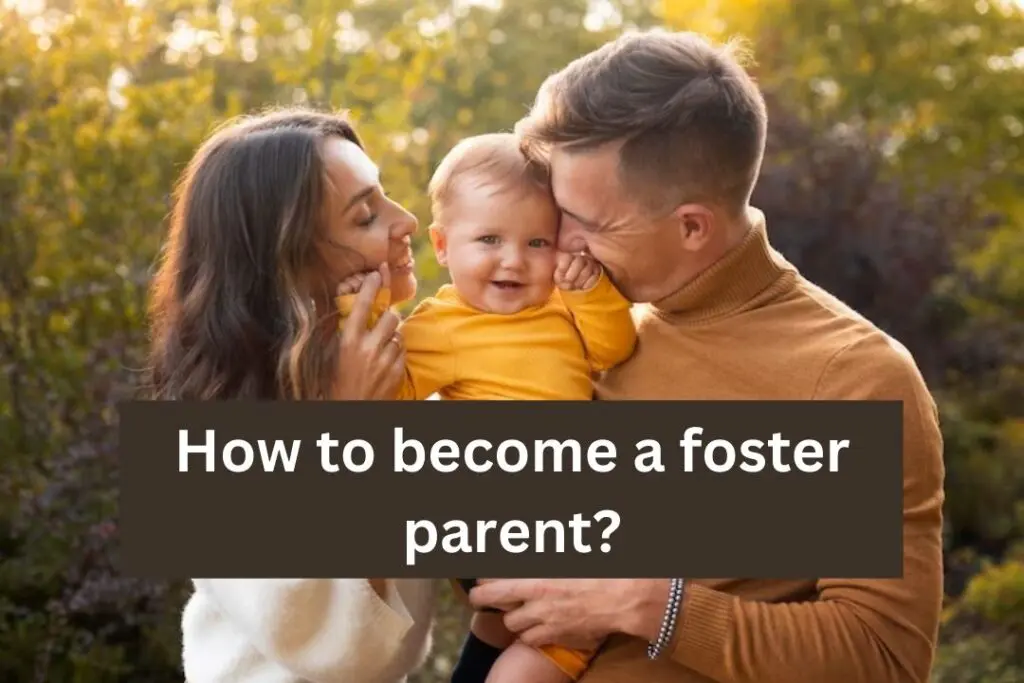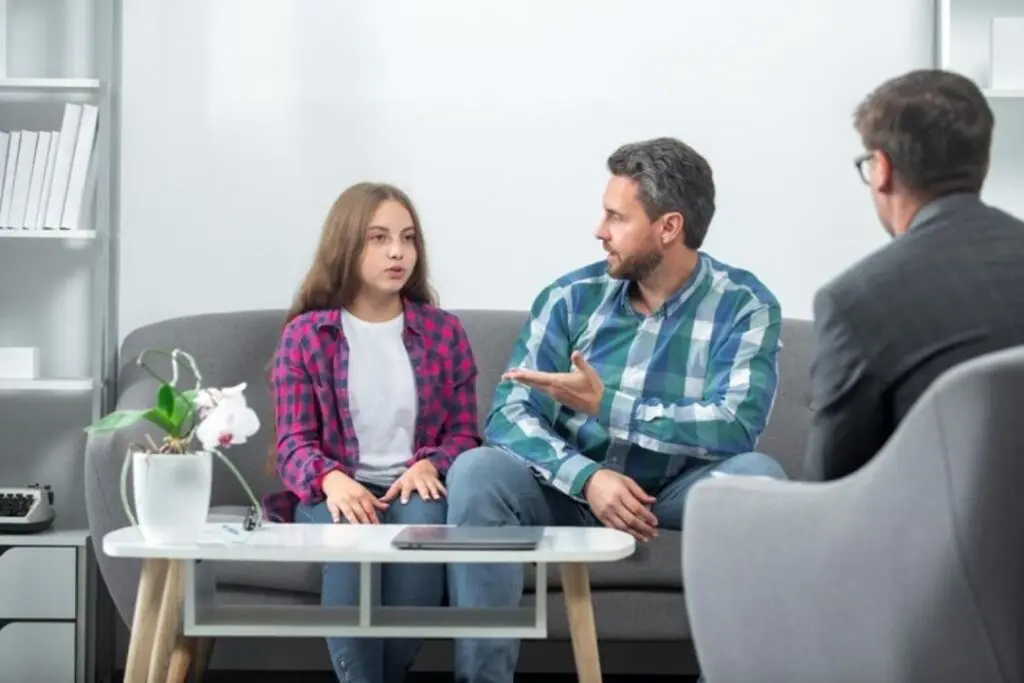Foster parenting is a rewarding and challenging way for individuals and families to help children in need by giving them temporary care and support. Becoming a foster parent is a way to make a positive difference in the lives of children who are at risk and give them a safe and loving place to stay when things are hard.
In this blog post, we’ll talk about how to become a foster parent, including what you need to do, how to get training, and what kind of help you can get. There are ways for anyone to become a foster parent and make a difference in a child’s life, whether they are single, married, have kids, or are “empty nesters.”
Read More: How To Co Parenting With Someone Who Hurt You
Understanding Foster Care
Foster care is a system that helps kids who can’t live with their own families for a short time because of safety concerns or other problems. Foster care can be given by family members, people who are not related to the child, or licenced foster parents. The goal of foster care provides and give children a safe and stable place to live while their parents work on fixing the problems that lead to them being taken away.
Read More: Positive Parenting Techniques
Requirements for Becoming a Foster Parent
To become a foster parent, you have to meet certain requirements that protect the safety and health of the child. Here are the most common things you need to do to become a foster parent:
Age and residency requirements: Foster parents must be at least 21 years old and legally live in the state where they want to foster.
Background checks and criminal record checks: Foster parents must go through a criminal record check, a child abuse registry check, and an FBI background check to make sure they don’t have a history of abuse, neglect, or criminal activity.
Financial requirements: Foster parents must show that they can take care of themselves and the child by meeting minimum income requirements and showing proof of stable housing.
Health requirements: In order to care for a child, foster parents must be in good physical and mental health. They may also need a medical release from a doctor.
Read More: When Does Parenting Get Less Exhausting
Standards for home safety and space: The state sets safety standards for foster homes, such as having working smoke detectors, a fire extinguisher, and no safety hazards. The home must also have enough room for a child to have their own bed and a place to put their things.
It’s important to remember that the requirements may be different from state to state or agency to agency, and there may be other requirements as well. Talk to a licensed foster care agency in your state to find out the rules and requirements in your area.
Choosing the Right Foster Care Agency
Step one in becoming a foster parent is to find the right foster care agency. When choosing a foster care agency, here are some things to think about:
Types of foster care agencies:
There are both public and private agencies that provide foster care services. Most public agencies run by the state. Private agencies, on the other hand, are usually non-profit groups that work with the state to provide foster care services. As a foster parent, you should look into and compare the different types of agencies to find one that fits with your values and goals.
Researching and comparing agencies:
When looking into agencies and comparing them, think about their reputation, experience, and the services they offer. Look for reviews from current or former foster parents and talk to other foster parents about their experiences with the agency.
Selecting the agency that meets your needs and values:
How to choose an agency that fits your needs and values: Once you’ve done research and compared agencies, pick the one that fits your needs and values as a foster parent the best. It’s important to feel comfortable with the agency you choose and have faith that they will help you through the whole process of fostering.
In the end, the agency you choose will give you training, support, and resources for the whole time you are fostering. As a foster parent, it is important to choose an agency that fits with your goals and values.
Read More: The Perfect Parenting Choices And Consequences
The Foster Parent Training Process
Foster parent training is an important part of the process of becoming a foster parent. Through the training process, people who want to become foster parents learn what they need to know and how to do it. Here are some things you should know about how to become a foster parent:
A look at how training works:
Most of the time, becoming a foster parent means going to a series of classes, workshops, or online modules. The training covers a wide range of topics, such as the foster care system, child development, trauma-informed care, and working with birth families.
The topics covered in training:
Foster parent training covers a wide range of topics, such as the needs of children in foster care, how to navigate the foster care system, how to talk to the children’s birth families, and how to deal with difficult behaviours. The training will also go over things that are unique to the agency, state, or county you work for.
The length of training:
The length of training depends on the state and the agency, but it usually takes a few weeks to finish. In some cases, the training crammed into a single weekend or week.
Importance of ongoing training and support:
The training process doesn’t end when you get a licence to be a foster parent. You will still need help and training in the future. Foster parents need ongoing training and help to make sure they have the skills and resources they need to meet the needs of the children in their care. Foster parents may have to go to training sessions or workshops on a regular basis to keep their licences.
The training for foster parents is meaning to get people ready for the challenges and rewards of taking care of a child. It’s important to go into training with an open mind and the desire to learn.
Read More: Parenting Problems And Solutions In 2023
The Home Study Process
The home study is a very important part of the process of getting a licence to be a foster parent. A home study is a full evaluation of your family’s ability to take care of foster children. Here are a few things you should know about the home study:
Overview of the home study process:
During the home study process, your family’s history, relationships, parenting style, and home environment are usually looked at. It involves talking to everyone in the house, checking their backgrounds, and looking at their financial and medical records.
Preparing for the home study:
It is important to get your home and family ready for the home study before it starts. This could mean cleaning and organising your home, making sure it meets safety standards, and filling out any paperwork that needs to be done.
Length of the home study:
Depending on the agency and how complicated your family’s situation is, the home study process usually takes a few weeks to finish.
How important honesty and openness are:
During the home study process, it is important to be honest and open. The agency is looking for families who can give a foster child a safe and stable home. Any mistakes or missing information could hurt your chances of becoming a licenced foster parent.
How the home study fits into the process of getting a license:
One of the most important parts of getting a licence is the home study. The information you give during the home study will help the agency decide if you are a good fit to be a foster parent.
The home study process can be overwhelming, but it is a necessary step to becoming a licenced foster parent. You should go into the process with an open mind, be honest, and be ready to learn and grow as a foster parent.
After Approval
After approval, becoming a foster parent is an ongoing process that requires ongoing support, training, and teamwork with your agency. Moreover, after approval, here are some things to keep in mind:
Keeping your licence:
If you become a licenced foster parent, you will need to keep your licence by taking ongoing training and meeting other requirements set by your agency.
Working with your agency:
As a foster parent, your main source of help will be the agency you work with. They can help you figure out how the foster care system works, put you in touch with resources and help, and give you ongoing training and education.
Working with birth families:
Foster care is meant to be a short-term solution while birth families work on getting their kids back. As a foster parent, you will work with the kids’ real families to make sure they can go home when it is safe to do so.
Building a support network:
Building a support network is important because being a foster parent can be hard, and you need to be able to turn to people when you need help. This can include other foster parents, family, friends, and your agency.
Advocating for children:
As a foster parent, one of your most important jobs is to speak up for the children in your care. This could mean going to court hearings, speaking up for the child’s needs, and working with other professionals involved in the child’s case.
Becoming a foster parent is a journey that is both rewarding and hard. After getting approved, it’s important to keep working with your agency, keep your licence up-to-date, and build a support network so you can give the children in your care the best care possible.
Foster parents get training
In order to become a foster parent, you must go through training. It gives you the information and skills you need to take care of a foster child well. Before you can become a licenced foster parent in most states, you have to go through training.
Some of the things that might be talked about in foster parent training are:
- How foster care works and what children in care need
- Effective communication with birth families and agency staff Positive parenting and discipline techniques
- Care for children who have been through trauma and help for those who act out
- The effects of foster care on a child’s growth and health
Support and Placement
Once you have a licence to be a foster parent, you will be able to have a child placed with you. In the placement process, you are matched with a child whose needs and traits are similar to yours. The child welfare agency decides where to put a child based on what is best for the child.
As a foster parent, the child welfare agency and other professionals involved in the child’s care will help you all the time. This could include visits from a social worker on a regular basis, access to support groups and other resources, and help meeting the child’s needs.
How long does it take to become a foster parent?
Different states and agencies have different rules about how long it takes to become a foster parent. On average, it takes a few months to a year to finish the process. This includes the home study, pre-service training, background checks, and licencing requirements.
Do I need to be married to become a foster parent?
No, you don’t have to be married to foster a child. Adults can become licenced foster parents as long as they meet the requirements. This is true for both single adults and married couples.
Can I choose the age and gender of the child I foster?
Foster parents can say what age and gender of child they would like to take in. The child welfare agency, on the other hand, makes the final decision about placement based on what is best for the child.
Conclusion
Becoming a foster parent is a big decision that can change a child’s life for the better. Becoming a foster parent can be hard, but it’s also a rewarding process that gives you the chance to make a real difference in the world.
To become a foster parent, you must meet the requirements set by your state and agency, choose the right agency, go through the training process, and have your home checked out. After getting approved, it’s important to keep your licence, work with your agency, build a network of support, and speak up for the kids in your care.
If you want to become a foster parent, take the time to learn about the process and find out what resources are available in your area. You can make a big difference in the life of a child in need if you have the right help and tools.




